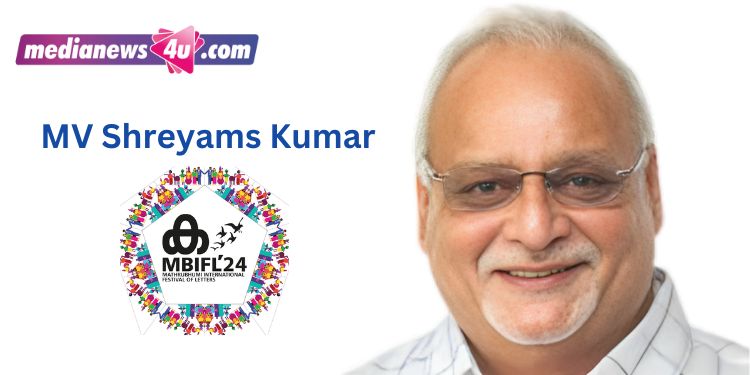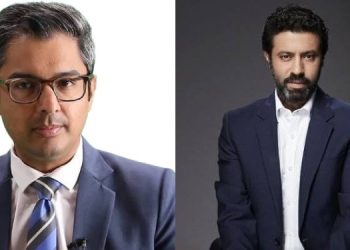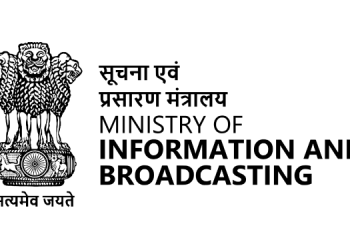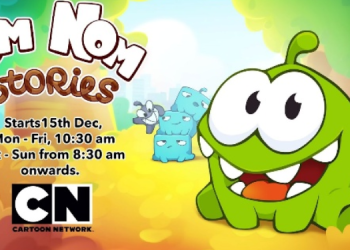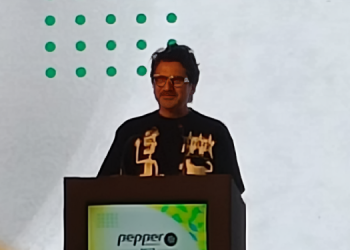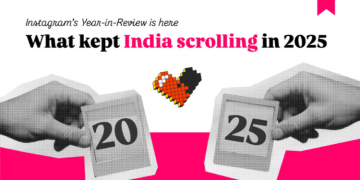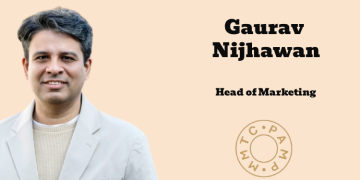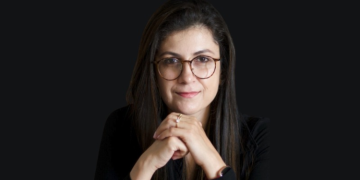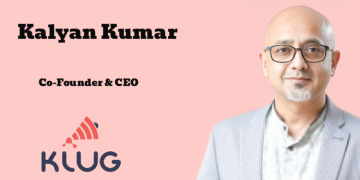Mathrubhumi International Festival Of Letters (MBIFL) was launched in 2018. It is billed as ‘one of the largest and most polyphonic cultural events in God’s own country’. It brings together hundreds of writers from Kerala, the rest of India and abroad, over several days. The theme for this year is ‘Exploring Plurality’. As always, the annual event at the Kanakakunnu Palace in Trivandrum will stoke imagination and creativity, discussing fiction, poetry, non-fiction, politics, environment, travel and cinema, among other themes.
In conversation with Medianews4u.com, MV Shreyams Kumar, Managing Director, Mathrubhumi Group talks about shaping the festival to be more audience focused and the relevance of the theme, as it gears up for its fifth edition in February 2024.
Can you tell us about the genesis of the MBIFL in 2018 – what were the objectives behind the creation of such an IP?
We are in the business of publishing and disseminating knowledge. Mathrubhumi has contributed enormously towards literature and culture. If you look at our former editors and employees, a huge part of them are great writers in Malayalam, starting from Kuttikrishna Marar, MT Vasudevan Nair, NV Krishna Warrier, and more. Mathrubhumi Weekly also played an important role in bringing out the work of all the legendary writers in Malayalam. The Mathrubhumi Weekly has completed 90 years and the Mathrubhumi newspaper has completed 100 years. We have been wanting to organise a literature festival which is a confluence of people from different backgrounds, cultures, outlook and can provide a wider perspective on different issues and topics.
That’s the reason we started MBIFL in 2018. During the pandemic period we couldn’t hold the fest. The 2023 edition was a large-scale event with 500 speakers over four days. It is the commitment of Mathrubhumi to the public to ensure that they get to see, hear, discuss, debate with people from different parts of the country and as well as across the globe. Only this kind of festival can bring people from various facets of life together. It is more a commitment towards the public.
MBIFL returned in 2023 after a gap of two years. How was it received?
It was received very well. The magnitude of the event was very large. There was a bit of clutter, which we don’t want in the 2024 edition. We want to create a schedule where people don’t miss out on important sessions.
In terms of attendees, number of speakers and sponsorships (even as a percentage), how has MBIFL grown from 2018 to 2023?
In 2018, we started off with three days and 300 speakers and we had great speakers from across the globe. We started getting feedback from the public that three days are not enough. That itself was a testimony to the success of the festival. At the end of it, we had to announce that next year’s edition is going to be a four-day festival. The second year it was a much bigger event. Last year there were 500 speakers, which is a large number to manage in that venue. We have now decided to go with 300 to 350 speakers.
We do get sponsors and that has grown from 2018. We try to cover the cost and it is not an IP we look at making profit from. If it makes a profit, well and good. But the objective was not that; the core objective is to bring in that array of speakers to Kerala and give the public exposure to these speakers and their talks. In the process, if it becomes ‘no loss, no profit’, then it is good enough.
Though we say that reading is dying, it is correct when it comes to one part of the community. At the same time, book sales are increasing every year. Maybe because many more titles in different languages are coming. In MBIFL, more than 80 pc of the attendees are youngsters and the good part is that they ask very intelligent questions. Only those people who are interested in listening to the speakers attend. We get a serious audience in huge numbers.
Last year’s theme was ‘Shadows of History. Lights of the Future.’ The theme for 2024 is ‘Exploring Plurality’. Tell us about the significance of the current theme.
Expressing divergent views has become a huge problem because there is a tendency to polarise. Even if you speak the right thing, it is looked at in a different manner with a couple of ideologies which exist in India – they try to create a different narrative around that. We see more and more intolerance. Unless you are able to discuss different aspects of a certain subject, then there is no use in plurality. We want to bring that into the forefront, whether it is literature, cinema, politics, art or culture. I believe good debates will always bring out better results. Are we losing that space now; are we scared of speaking the truth? These questions led us to deciding on the theme ‘Exploring Plurality’.
The festival is a celebration of letters and ideas. In terms of content, it is a confluence of entertainment and literature. How does the content get amplified by the different media vehicles of the group?
We cover it on our TV channel, newspaper, to some extent on radio. And of course on digital we do extensive coverage. We do live and social media postings as well. We use YouTube. Even now, those videos are doing pretty well. There are videos from 2018 which are getting traction, which means people are interested and are watching it. If we put all the verticals of Mathrubhumi Group together, then it covers 73 to 74 pc of Malayali audience in Kerala.
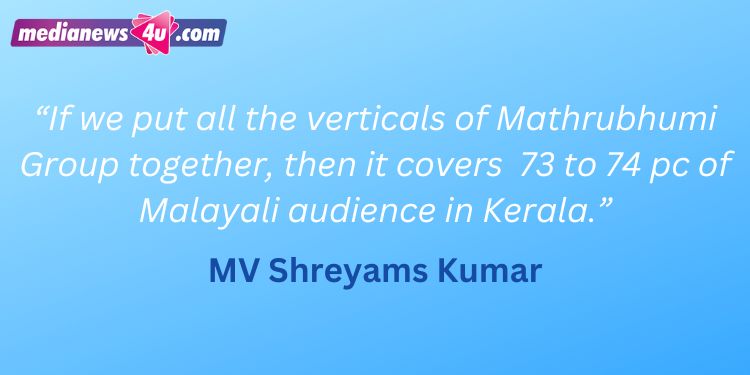
Would MBIFL be one of the largest event IPs of Mathrubhumi Group? Which is the largest? Do you see the scope for more such properties in future?
There are many IPs and MBIFL is one of them. There are events at different scales and types at different places, you can’t compare it that way as each vertical has its own IPs.
There is scope for such properties and we are working on a couple of new ideas currently.
What new can one expect at MBIFL 2024?
Different speakers were speaking at different venues at the same time last year. People wanted to listen to all of them but couldn’t. This year, we have restricted the speaker numbers to around 300 over four days. We are hoping to get about 50 writers from other countries and 100 from different parts of our country and around 150 from Kerala. We are finalising the topics and the curators are on it. We have started inviting people and have been receiving a positive response. We are getting enquiries on the fest which is a good sign; that means they had a good experience in the previous editions of MBIFL. A lot of things are in the pipeline. We are going to make it much more audience-friendly.
How does MBIFL add to the digital engagement of the Mathrubhumi brand? And how does digital contribute to attracting audiences?
Yes, there is growth. When it comes to attracting people for the event, though we use all these mediums, the best response we get is through the newspaper. The day the news appears in the newspaper, there are immediate calls to the call centers on the entry fee and other details. Most of our ticket sales are through that. Though we do extensively use social media platforms and we do spend there, print has more impact.
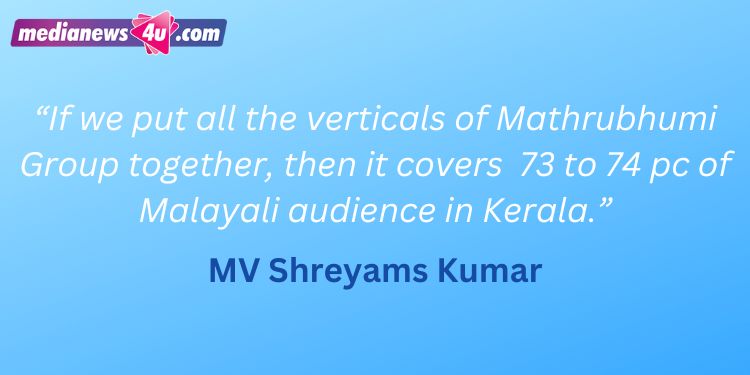
Feedback: [email protected]

